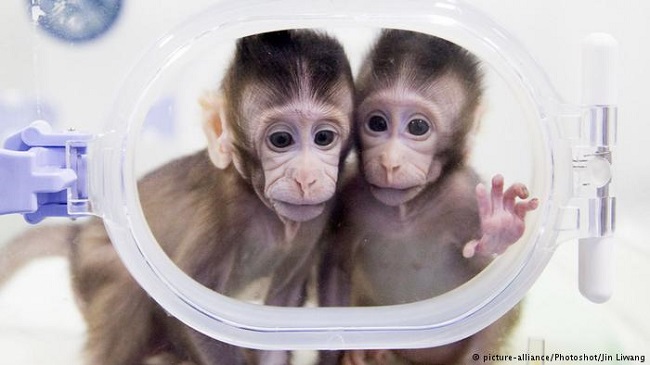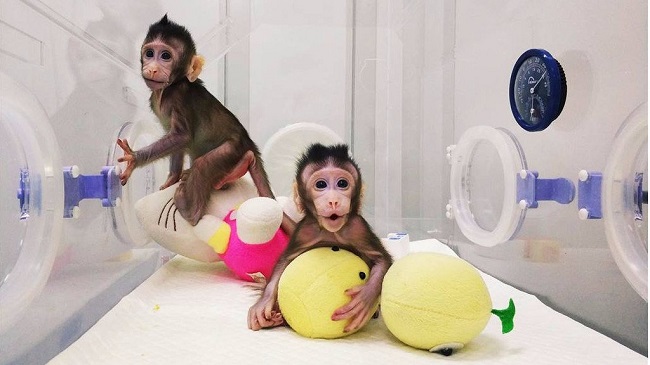There was a movie called “The Island” which forced us to think about frightening possibility of human clones. Although it was a fantasy movie but it also posed a lot of questions on the times ahead in the future. The movie showed that humans will one day be able to duplicate themselves. The very idea that someone will be able to clone themselves for the purpose of organ harvesting is simply terrifying. The first mammal which was cloned in 1996 was known to the world with the name – Dolly the Sheep.

Image Source: www.youtube.com
1Scientists in China have successfully cloned monkey
Advertisement
Now, the scientists in China have successfully cloned a monkey and given birth to two monkeys - Zhong Zhong and Hua Hua. They were cloned in a laboratory in China. As per the scientists, they are cloned to study the diseases with genetic basis such as some forms of cancers and immune disorders.

Image Source: www.livemint.com
2There are a lot of questions about primate biology
Advertisement
“There are a lot of questions about primate biology that can be studied by having this additional model,” Qiang Sun of the Chinese Academy of Sciences Institute of Neuroscience said of the successful experiment.

Image Source: www.viralthread.com
3The two cloned long-tailed macaques are developing normally
Advertisement
As per the reports, the two cloned long-tailed macaques are developing normally. The two monkeys were born within two week’s times. The scientists took 79 attempt before Zhong Zhong and Hua Hua took birth. They were cloned from a very different kind of cell which failed to survive.

Image Source: www.theguardian.com